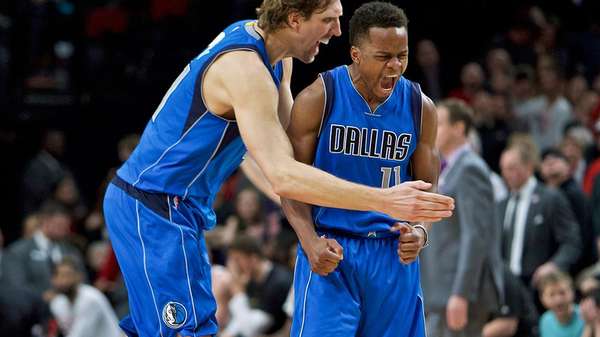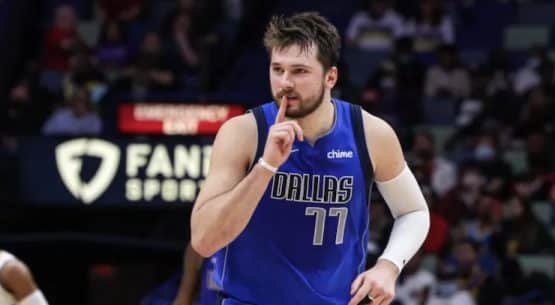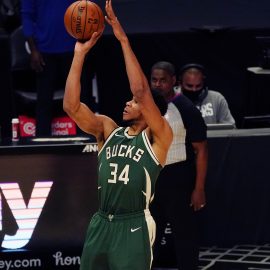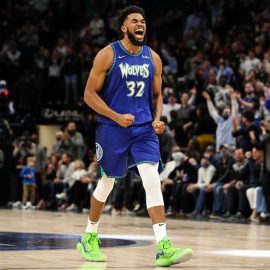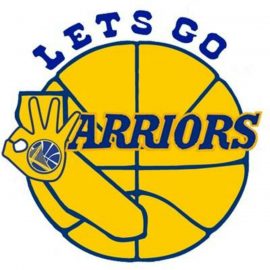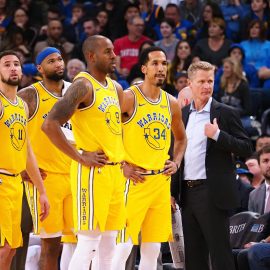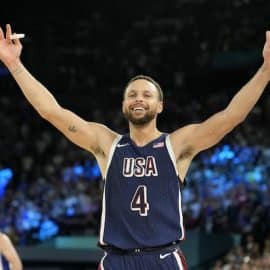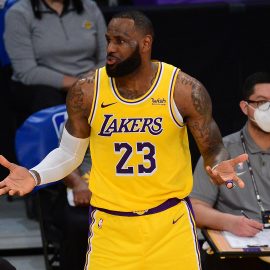The NBA Developmental League has a new name, and NBA teams are taking advantage of the league like never before. How is each lottery team utilizing the D-League?
The NBA is a 30-team league, with fifteen players allowed on each roster. Simple math tells us that 450 players are “in the NBA” at any given time. With the globe opening up to scouts and front offices and domestic AAU teams ramping up the skills of American players, there are two and three times that number of players worthy of consideration for NBA rosters.
Most of those players – and many of the 450 whose names appear on roster lists – are not ready for primetime. They have potential that is untapped, or skillsets that need to be better formed. With limited minutes available in games [more math gives us 48 x 5 = 240] those players have historically languished on the end of benches, waiting on injuries or a trade to spark their careers.
Thankfully the NBA has found an avenue to develop those players, namely the D-League. Teams can assign players to teams, designate players 16-18 to land on a certain team, and scout out new players as they display their abilities in NBA-type schemes among NBA-type talents.
Each NBA team in the lottery should be leveraging every avenue to success that they can. Stockpiling draft picks, taking fliers on marginalized players, and not wasting their cap space are all common ways to build for the future. Another way is to use the still untapped resource that is the NBA’s second league.
Starting next season, the league will enter a full partnership with Gatorade and be re-christened the “NBA Gatorade League”. For the time being, however, it’s still the D-League, and teams are up and down on their use of this resource.
How is each lottery team doing in their use of the D-League? Let’s walk through the league’s less successful and measure their use of this particular resource.
Brooklyn Nets – B-
Positively, the Nets started a new D-League affiliate team this season as part of an organizational shift to best make use of the assets available to them. They branded the team and have utilized the community aspect well, and are frequently moving players over to Long Island to provide them opportunities to play. They are also active in acquiring talent, including recent draft picks such as Cliff Alexander and R.J. Hunter.
But the Nets also had Yogi Ferrell playing with Long Island for months without realizing his potential. Ferrell just signed a two-year deal with the Dallas Mavericks, who have such confidence in him as their starting point guard that they cut Deron Williams. With Jeremy Lin and Greivis Vasquez injured for most of the season, Brooklyn has desperately needed a point guard, and one was right in their organization’s plain sight the entire time.
Phoenix Suns – B
The Suns are in a unique position with their team, in that they are allowing their young prospects to stretch their wings in the regular rotation. Marquese Chriss, Dragan Bender, and even Tyler Ulis have received consistent minutes with the parent club, limiting the need to do so with the Northern Arizona Suns.
But Phoenix did make the right move to acquire the Bakersfield Jam last offseason, rebrand the team, and move them closer to Phoenix. This allows them to best utilize the team in an affiliate relationship, a move more teams are making each season (and rightfully so).
Los Angeles Lakers – A
The Los Angeles Lakers have one of the most successful teams in the D-League, the Los Angeles D-Fenders. They were the runner-ups last season, and this season they are on pace for 39 wins, most in the league and only one shy of the record for most wins in a season. Part of a team’s goal from the business side is to field a successful team, and Los Angeles is doing so.
They are also getting run for some of their young prospects, including second-rounder Ivica Zubac, who is putting up 15.6 points and 9.7 rebounds over 13 games with the D-Fenders. However, the Lakers have released a number of late draft picks in recent years – Ryan Kelly, Anthony Brown – who did not appear to benefit from development with the D-Fenders. That isn’t to say those players would have developed elsewhere, simply a question that is unanswered.
Dallas Mavericks – A-
The Dallas Mavericks have this season’s biggest D-League success story, with young Yogi Ferrell taking the league by storm after coming straight from the Long Island Nets. The Mavericks are so confident in Ferrell they bought out starting point guard Deron Williams, and signed Ferrell to a two-year contract. While Seth Curry was not signed directly from the D-League, he is another Dallas rotation guard coming out of the league.
Dallas also owns and operates its own D-League affiliate, the Texas Legends, and have used that frequently this season to both assign players and sign players to fill temporary needs. While Dallas has struggled to develop some of its young players, that is the only blemish on an otherwise strong utilization of the league.
Orlando Magic – C-
The Orlando Magic have one thing going for them – they have a D-League affiliate team. Unfortunately that team plays a thousand miles away in Erie, NY, making it difficult to move players freely between the two clubs. Despite the addition of three expansion teams into the Eastern Conference, the Erie BayHawks are last in the East with just 11 wins.
In addition to playing poorly on the court, Erie has done little to develop players for the Magic. Despite a number of high draft picks, Orlando has one good young player on the team in Aaron Gordon, who has not spend time with the BayHawks. Players such as Elfrid Payton, Mario Hezonja, and C.J. Wilcox have not secured a foothold towards their ceilings, and low-cost Orlando acquisitions such as Cliff Alexander failed to pan out as well. Orlando has received little benefit from their D-League franchise thus far.
Philadelphia 76ers – A-
The Delaware 87ers have taken a cue from their parent club and been one of the most active teams in the D-League, moving players up and down between the leagues as well as signing and trading players. 24 different players have suited up for a team that can legally have just 10 at a time. Players from the 76ers such as Richaun Holmes and Timothe Luwawu-Cabarrot have seen run with Delaware, in addition to players cut from other NBA rosters in Aaron Harrison, Dionte Christmas and Danuel House. Meanwhile, 3-and-D wing Robert Covington, now a fixture in the starting lineup, was a former D-League standout for the Rio Grande Valley Vipers.
The 76ers receive a boost from their proximity to Philly, as well as having a name that is clever and unique with a local connection. Mirroring Philadelphia’s reference to the Declaration of Independence signed in 1776, the 87ers hearken to a proud piece of Delaware’s history itself. The United States Constitution was ratified in Delaware before any other state, in the year 1787. Nicely done.
Minnesota Timberwolves – F
The Minnesota Timberwolves are one of nine franchises without a D-League franchise, and the only team in the entire NBA not to have assigned even one player to the D-League. While an affiliate team would make this a more streamlined process, the other eight teams have all assigned players to the D-League at times. To ignore that resource is a combination of arrogance, distrust and ignorance – not on a grand scale, but NBA teams are built on the margins more so than center stage.
The problem for Minnesota is that they have a young core and an old back of the bench. Two roster spots that could have gone to developing prospects are allocated to Brandon Rush, who rarely plays, and the injured Nikola Pekovic, who never does. Their other problem is that they have no announced team on the horizon, either, one of the only remaining teams in such a situation. This team is getting no value from the D-League this season.
New York Knicks – A-
The Westchester Knicks are one of the better teams in the D-League Eastern Conference, with a solid stable of players from each level of the NBA. The Knicks have made consistent use of the team, sending down players such as Ron Baker, Marshall Plumlee and Willie Hernangomez. Each of those three players has seen time in the rotation for the parent team this season, and Hernangomez has at times started for the New York Knicks.
New Orleans Pelicans – C+
The New Orleans Pelicans are one of those teams without a direct D-League affiliate, meaning they are unable to move players back and forth with ease. What they have done is utilize the assignment system to send players to other teams, something they have done with Check Diallo this season. The rookie out of Kansas has played for three separate D-League teams, receiving the opportunity to play in a variety of schemes.
Where the Pelicans need to improve, of course, is adding a D-League team of their own to play games in the nearby vicinity. When Check Diallo is playing home games in Greensboro, NC or Austin, TX it makes it more difficult to move him between the levels. Having a nearby affiliate would go a long way towards improving the development of this organization.
Charlotte Hornets – A-
The Charlotte Hornets are another team that added a new D-League team of their own this season, planting it in nearby Greensboro, NC. That was an inspired move, tapping into the already vibrant basketball community present on Tobacco Road. Greensboro is close enough to Charlotte to allow easy movement of players, while far enough away to extend the Hornets’ reach without simply overlapping it.
Charlotte has utilized the team often, assigning a full three affiliate players and sending end of the roster players down to play with the Swarm frequently. When they needed a big man, they went to the Swarm roster to sign a center. The only blemish is that the Hornets could use a player in their rotation this season to improve their bench, and none of the players that have spent time in Greensboro – affiliate or assignment – are up to the task.
Portland Trail Blazers – C-
Another team without an affiliate, Portland has barely dabbled in the D-League this season. They have assigned a pair of players – Tim Quarterman and Jake Layman – to the D-League for stints, but have not made any announcements about adding a franchise of their own. For a team with plenty of money on hand and a thirsty basketball market just a few hours away, placing a D-League team in Seattle seems to make too much sense.
Having a team of their own, running their system and managed by their infrastructure, would help provide an avenue for players such as Noah Vonleh to develop. Vonleh has plenty of potential, but Portland has been attempting to tap that potential by starting him, a move that is not helping them win games. This organization needs to make the obvious move and improve their franchise by starting a D-League affiliate team.
Sacramento Kings – B+
The Kings run the Reno BigHorns, only a few hours away in Nevada. The team itself has not been particularly successful this season, ranking ninth in the Western Conference, but has performed its other duty with frequency. The Kings have used the BigHorns to provide development and playing time for a number of its young prospects – Georgios Papagiannis, Skal Labissiere, and Malachi Richardson have all played at least 11 games with Reno.
The Kings’ grade is brought down by the lack of this organization’s ability to develop even one young talent over the last five years. Ben McLemore, Nik Stauskas, and Thomas Robinson have all struggled to cling to the league, often not with Sacramento. Willie Cauley-Stein is not living up to expectations as the seventh pick in the 2015 Draft, and while no one expects much from this year’s rookies, none have been able to fill an NBA rotation thus far.
Milwaukee Bucks – B
The Milwaukee Bucks do not have an affiliate team, but they recognized that lack and announced recently that they will be starting a team for next season in Oshkosh, Wisconsin. The Bucks are wisely tapping into an underrated basketball market, where professional non-NBA basketball has had a foothold for decades.
A big reason Milwaukee needed this team was their lack of utilizing the current assignment system, sending just one player – Rashad Vaughn – for assignment this year. In their defense, the Bucks have a strong track record of developing their own talent, but adding a team in-house will surely be an upgrade on their development system. Milwaukee also recently dipped into the D-League to sign French forward Axel Toupane to a 10-day contract.
Miami Heat – A+
The Miami Heat do not have a nearby D-League affiliate, instead using the distant Sioux Falls Sky Force in South Dakota. But the Sky Force are one of the league’s most successful franchises, with a devoted fan base taking advantage of a market lacking top-level professional sports teams. The team set a D-League record with 40 wins last season as they won the title. The Heat have overcome the travel limitations to tap the D-League to its fullest potential.
Tyler Johnson is signed to a long-term contract after impressing the Heat on the Sky Force in 2015. Josh Richardson is a bright player of the future for the Heat, and spent significant time in Sioux Falls during his rookie season. Rodney McGruder was a player acquired by Sioux Falls who led the team to a D-League title last season before signing a three-year contract with the Heat prior to this season. Okaro White was assigned to the Sky Force as an affiliate player this year and later signed to a contract for the rest of the season. Furthermore, the Sky Force runs the same stuff as Erik Spoelstra, so guys are accustomed to his system if/when they receive a chance with the parent club.
The Miami Heat are mining the D-League for talent, and filling out a rotation with that talent. Hassan Whiteside is on a $90 million contract after the Heat signed him from the D-League, one of the biggest success stories in the league’s history. The Heat are playing chess where every other team is playing checkers, and it’s continually paying off.
Add The Sports Daily to your Google News Feed!
